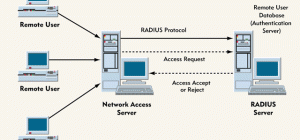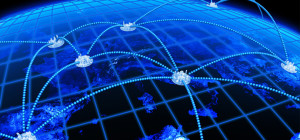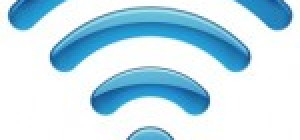Don't do online banking or share any sensitive information while using unsecured Wi-Fi networks. We are well aware of this advice but the question is, why is using the public Wi-Fi network dangerous?
You can fall into trouble using the free open Wi-Fi networks. The open nature of the networks makes space for snooping; the network can have several compromised machines and the hotspot itself may be malicious.

Wireless Network Types
What is an unsecured network?
We call a network unsecured if there aren't any password or login credentials necessary to access them. You just use the connection to surf websites. Though these networks are still found in several places, steps are being taken to make them secure.
The two types of Wi-Fi networks are
- Ad- hoc networks
- Traditional access point networks
The ad-hoc networks connect the devices directly to one another; the traditional networks, on the other hand, connect the devices to a central router.
If you are connecting two laptops or a laptop and a phone without using a router or other hardware, it is an ad-hoc network. This is different from the traditional access point networks where each device is connecting to a router.
Why Refrain from Connecting to the Unsecured Networks?
Say, you are sitting in the airport and decide to check out on your Facebook page and email to spend some time. You scan the available networks and find one of them open and unsecure. You connect to it and begin surfing.
It's a great opportunity to connect and use free Wi-Fi to browse websites and check emails, right? You check your bank statement too. Within minutes, your bank messages you that you have just transferred a huge amount. Amazed? How can this be possible? You have just checked the statement. You did not transfer money. The man at the corner reading the newspaper just five minutes ago was waiting for you to connect to the network so that he could start his job. As soon as you used the network, he got access to your passwords, including your emails, bank accounts, everything. This is exactly the way things work in the unsecured networks. The hackers can get in, see the password you are using and other activities you undertake using the network.
Here are some of the most common ways in which your privacy may be breached when you use the unsecured open Wi-Fi networks.
Snooping
Encryption protects network traffic from the prying eyes. If your neighbor is within the range of the Wi-Fi network you are using, he can't see the webpages you are viewing. This is because, wireless traffic is encrypted between your tablet, laptop, smartphone and the wireless routers. This is encrypted with the Wi-Fi passphrase.
The open Wi-Fi networks, like the ones you find at the airport and the coffee shops, the networks are usually unencrypted. The unencrypted network traffic is clearly visible to all within a given range. People can see the web pages you visit, and the websites, you are connected to, even if they are encrypted.
If you use the open Wi-Fi networks frequently, you can pay for a VPN. Browse through it while you use the open Wi-Fi networks. The hackers, in this case, can only see that you are connected to VPN not the things you are doing on it.
Compromised Devices
The compromised laptops and other devices may be connected to the local network. While connecting, make sure that you select the ‘Public network' and not the Home or the Work network options. The Public Network options lock the connection, ensuring Windows is not sharing files and other sensitive details with other machines on the local network.
Make sure that you remain updated and use a firewall. The compromised laptops on the local network may try and infect you.
Malicious Hotspots
Quite dangerously, the hotspot you are using may turn out to be malicious. This may happen because the hotspot of the business was infected or you are connected to a malicious network.
If you have connected to public Wi-Fi, you can never be very sure that the network is legitimate and has not been set up by an attacker to trick people.
Never do online banking or access sensitive data while you are on open networks. Don't go for it even if the website is encrypted with HTTPS. A VPN connection is quite likely to offer protection.
Taking free Wi-Fi access for granted is easy. Quite unfortunately, as the public hotspots are gaining prevalence, there is a rise in the number of hackers as well. The best way to remain protected of data theft is an understanding of Wi-Fi as well as its vulnerabilities. Taking a few common sense precautions will go a long way in saving you of trouble.
Contributed by https://www.inspirewifi.com/



![8 Mind Blowing Facts about Fiber Optics [Infographic]](https://lerablog.org/wp-content/plugins/wp-thumbie/timthumb.php?src=http://lerablog.org/wp-content/uploads/2017/02/INFOGRAPHIC-8-Mind-Blowing-Facts-About-Fiber-Optics.jpg&w=300&h=140&zc=1)



